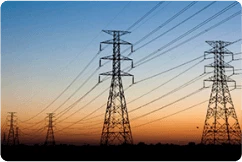- Country: Burkina Faso
- Summary: Supporting the Formalization of Artisanal and Small-Scale Gold Miners through the Development of a Gold Trading Social Enterprise
- BFT Ref No: 52596355
- Deadline: 10 May 2021
- Financier: World Bank (WB)
- Purchaser Ownership: Government
- Tender Value: Refer Document
- Notice Type: Tender
- Document Ref. No.: 1274377
- Purchaser's Detail:Login to see full purchaser details. Login to see full purchaser details. Login to see full purchaser details. Login to see full purchaser details. Login to see full purchaser details. Login to see full purchaser details. Login to see full purchaser details. Login to see full purchaser details. Login to see full purchaser details.
- Description:
- Expression of Interest are invited for Supporting the Formalization of Artisanal and Small-Scale Gold Miners through the Development of a Gold Trading Social Enterprise in Burkina Faso. REQUEST FOR EXPRESSION OF INTEREST FOR SELECTION # 1274377 This Request for Expression of Interest is for a Firm Selection. Please log in as a valid Firm User if you wish to express interest in this selection. Selection Information Assignment Title Supporting the Formalization of Artisanal and Small-scale gold miners through the development of a gold trading social enterprise in Burkina Faso Publication Date 26-Apr-2021 Expression of Interest Deadline 10-May-2021 at 11:59:59 PM (Eastern Time - Washington D.C.) Language of Notice English Selection Notice Assignment Country · BF - Burkina Faso Funding Sources The World Bank Group intends to finance the assignment/services under: · BB - BANK BUDGET · TF0B3823 - EGPS-2 Emergency Response - Artisanal Mining Communities Impacted by COVID-19 Individual/Firm The consultant will be a firm. Assignment Description In the last two decades, several international organizations have been working towards better integrating ASM into global economies, developing more responsible extraction and sourcing practices to support more sustainable development. These include Fairtrade Mining Standards, the Alliance for Responsible Mining (ARM)s Fairmined Standards, the Organisation for Economic Co-operation and Development (OECD) Responsible Sourcing Guidance, and the Global Mercury Partnership. Chain of custody initiatives have attempted to ensure that traceable supply chains are free from conflict and human rights abuses. They respond to the need of companies seeking to meet international regulations and/or voluntary codes and to ensure good business practices. The different schemes have played a role in reaching and raising the profile of marginalized ASM communities and their daily challenges to a global audience and consumers; helped to address the negative impacts of ASM activities through working with operators to become certified and the related benefits of doing so; and ensured a more responsible approach to sourcing minerals in conflict-affected and high-risk areas. This objective of this TOR is to support the establishment and/or expansion of an existing gold buying social enterprise which will allow the miners to sell their gold for higher prices closer to the international spot price in order to incentivise formalisation and to enable professionalisation. The social enterprise will increase the number of miners engaged in formal trade and will verify compliance to the LBMA and OECD due diligence guidelines, while providing men and women miners with access to international responsible gold buying markets at better terms of trade. The model will establish more resilient, formal, traceable, and gender equitable supply chains that maximize the transfer of resources back into these ASM communities. This will help increase the resilience of the miners and their communities to cope with the impacts of negative shocks such as Covid-19. The successful firm will need to demonstrate how it will break down barriers to formalisation and attract large numbers of ASM miners to trade through the buying social enterprise and how the firm will garner support from all stakeholders including government authorities, miners and their communities. The firm should also make it clear what they estimate the minimum amount of gold to be traded through the enterprise for it to be viable and how many miners would need to sell their gold to reach this volume of trade. Technical Proposal should also demonstrate how the project will factor in gender-specific actions to close gender gaps and promote gender equality. Specifically, the Task team is seeking the following to be performed: 1. Gender-sensitive market research and stakeholder mapping for establishing a gender-equitable responsible gold trading social enterprise. This should involve an assessment of the local gold market focusing on financial flows, distribution of value and power amongst ASGM supply chain actors and should include field gold trade price data. The assessment should focus on womens access to mineral resources and access to formal supply chains. The outcome of this task should lead to a solid M&E Plan for the project. 2. Devise detailed business plan for gold buying social enterprise. Based on findings from Task 1. 3. Establish and operationalize a gold buying social enterprise to develop a resilient, traceable supply chain from miner to market that is OECD and LBMA compliant and which offers a higher price and better terms of trade for gold miners. In the Technical Proposal the firm will need to elaborate in detail on how the gold will be bought and traded through the gold buying social enterprise and exported to off-takers. The Technical Proposal should also outline the methodology on selecting and implementing mine site standards and their introduction to participating mines. A clear target on measuring improved health and safety conditions will be requisite as part of this methodology. 4. Document implementation for global learning with a view to participating in conferences, webinars, discussion forums on the effectiveness of the model. Attachments · Optional TOR File Qualification Criteria · 1. Provide information showing that they are qualified in the field of the assignment. · 2. Provide information on the technical and managerial capabilities of the firm. · 3. Provide information on their core business and years in business. · 4. Provide information on the qualifications of key staff. Terms of Reference (TORs) Supporting the Formalization of Artisanal and Small-scale gold miners through the development of a gold trading social enterprise in Burkina Faso Background COVID-19 not only represents a worldwide public health emergency but has become an international economic crisis that could surpass the global financial crisis of 2008-09. Recent estimates of the World Bank indicate that COVID-19 is likely to cause the first increase of global poverty since 1998, pushing 40 to 60 million into extreme poverty . Growth in Sub-Saharan Africa has been significantly impacted by the ongoing coronavirus outbreak and is forecast to fall sharply from 2.4% in 2019 to -2.1 to -5.1% in 2020, the first recession in the region over the past 25 years, according to the latest Africa-s Pulse, the World Bank-s twice-yearly economic update for the region. Almost by definition, low- and middle-income countries do not have enough “fiscal space”: that is, the ability to deploy public funds and resources to counter a large negative shock. Their debt is more subject to exchange rate and maturity risks, their credit rating is lower, and their financial markets are shallower. In addition, a small tax base and less efficient tax administration mean that income support for the affected and countercyclical fiscal policy are harder to implement in developing than developed countries . Within developing countries, the COVID-19 crisis will have an immediate and amplified impact on the poorest and most vulnerable regions. The impact on state income and the surge in unemployment will likely lead to an increase in migratory movements of the informal labor economy. This, combined with a significant increase in gold prices, could lead to an uptick in informal mining and an amplification of its complications and risks. Those who were working in urban areas and migrate to rural areas are likely to work in artisanal and small-scale mining as a straightforward, though informal, livelihood source. The consequences are often specific and differ in different regions. But in most cases, informal workers driven to rural or pristine areas will lead to increasing contagion, an increase in poverty, gender-based and other types of violence and insecurity. In the mid-term, consequences will include a surging migratory movement, increasing environmental damage and social and economic disruption. COVID and its impacts on ASM Artisanal and small-scale mining (ASM) employs 42 million people across the globe (World Bank, 2019), a substantial increase from the estimated 10 million persons first suggested twenty years ago (ILO, 1999). Increasingly, ASM is the principal income source for miners and their households, debunking the myth that it is a short-term, poverty-driven activity. In fact, wages earned in ASM typically outcompete other rural livelihoods such as agriculture and petty trade, making it a primary employment opportunity. Currently, artisanal production makes up for 25% of diamond production; 25% of cobalt; 20% of gold; and 80% of sapphire production globally. The overarching dynamics that drive the impacts on the ground are an increasingly severe health crisis, a massive loss of formal and informal jobs in urban areas and as a consequence a vast migration from cities back to rural areas (as evidenced in India and other places). Poor and vulnerable people who were living in cities are likely to engage in informal mining activities in rural areas, as an easy source of income and livelihood. Through the data collection undertaken from May - August 2020 the World Bank and 17 data collection partners have gained greater insights on the potential short- and medium-term impacts of COVID in ASM communities. At a country level, and across all reporting periods, 20 of the 22 countries surveyed had a majority of respondents indicate that COVID-19 had affected their ability to work in the mines. Government restrictions asking individuals to stop work and constricting access to mining sites were the most disruptive measures impacting miners- access to sites in the first two reporting periods. restr
- Documents:
If you are registered member, kindly login to view full details of this tender notice:
CLICK HERE TO LOGINSupporting the Formalization of Artisanal and Small-Scale Gold Miners through the Development of a Gold Trading Social Enterprise - Burkinafaso Tender
The THE WORLD BANK GROUP, a Government sector organization in Burkina Faso, has announced a new tender for Supporting the Formalization of Artisanal and Small-Scale Gold Miners through the Development of a Gold Trading Social Enterprise. This tender is published on BurkinafasoTenders under BFT Ref No: 52596355 and is categorized as a Tender. Interested and eligible suppliers are invited to participate by reviewing the tender documents and submitting their bids before the deadline on 2021-05-10.
The estimated tender value is Refer Document, and full details, including technical specifications and submission requirements, are provided in the official tender documents. Ensure all submissions meet the criteria outlined to be considered for evaluation.




